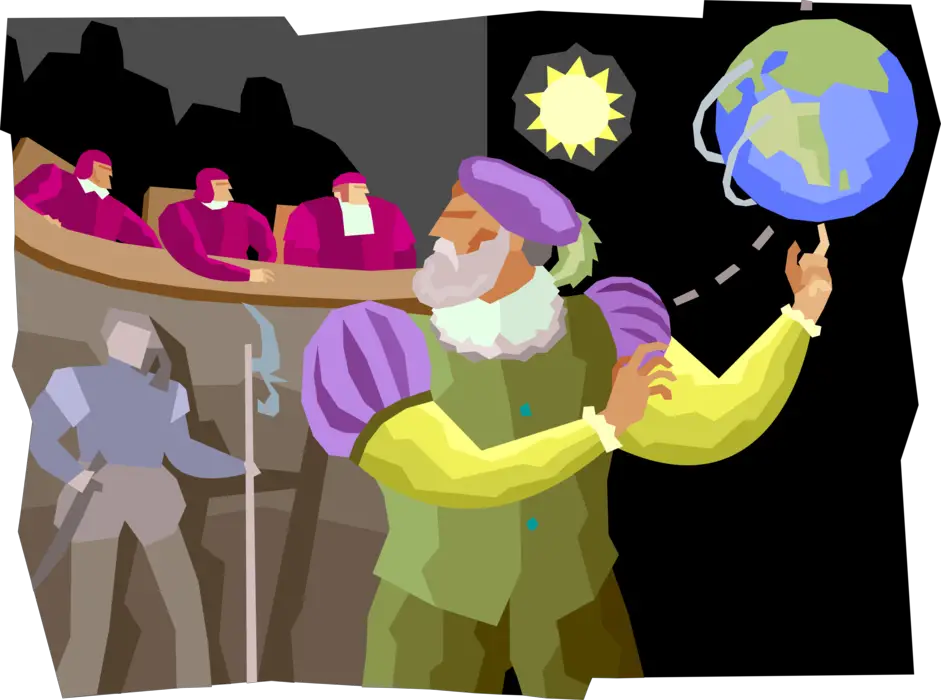Overview
Introduction to the Scientific Revolution
The Scientific Revolution was a period of great intellectual and scientific advancements that took place in Europe during the 16th and 17th centuries. It was a time when traditional beliefs and ideas were challenged and replaced by new theories and discoveries. Scientists and thinkers during this time began to question the traditional explanations of the natural world and sought to understand it through observation, experimentation, and reasoning. This period marked a shift from a religious and superstitious worldview to one based on empirical evidence and rational thinking. The Scientific Revolution laid the foundation for modern science and has had a profound impact on various fields, including physics, astronomy, biology, and medicine.
Key Figures and Discoveries
The Scientific Revolution was marked by the contributions of several key figures who made groundbreaking discoveries. One of the most influential figures of this period was Galileo Galilei, an Italian astronomer, physicist, and engineer. Galileo’s observations using the newly invented telescope challenged the prevailing geocentric model of the universe and supported the heliocentric model proposed by Nicolaus Copernicus. Galileo’s discoveries, such as the observation of the phases of Venus, provided strong evidence for the Copernican theory. Another important figure of the Scientific Revolution was Isaac Newton, an English mathematician and physicist. Newton’s laws of motion and the concept of universal gravitation revolutionized our understanding of the physical world. His work laid the foundation for Newtonian physics, which became the dominant scientific framework for centuries. These key figures and their discoveries played a crucial role in shaping the course of the Scientific Revolution and paving the way for future scientific advancements.
Impact on Society
The Scientific Revolution had a profound impact on society, transforming the way people understood the world and their place in it. One of the key effects was the expansion of scientific knowledge and the development of new laws of nature. Scientists, building on the discoveries of key figures like Copernicus and Newton, were able to formulate bold new theories and principles that explained the workings of the natural world. These theories, based on empirical evidence and rigorous experimentation, challenged traditional beliefs and paved the way for a more rational and evidence-based approach to understanding the universe. The expansion of scientific knowledge also led to advancements in various fields, including medicine, technology, and industry. Expanding on scientists’ new law of nature, these advancements improved the quality of life for many people and laid the foundation for further scientific progress in the centuries to come.
The Copernican Revolution

The Heliocentric Model
The Heliocentric Model was a revolutionary concept proposed by Nicolaus Copernicus in the 16th century. It challenged the prevailing belief that the Earth was the center of the universe and instead proposed that the Sun was at the center, with the planets, including Earth, orbiting around it. This model not only provided a more accurate explanation for the observed motions of the planets but also laid the foundation for a new understanding of the cosmos. Copernicus’s work paved the way for future astronomical discoveries and marked a significant shift in scientific thinking. The acceptance of the heliocentric model had profound implications for our understanding of the universe and our place in it.
Galileo Galilei and his Observations
Galileo Galilei, an Italian astronomer and physicist, played a crucial role in the Scientific Revolution with his groundbreaking observations and experiments. One of his most significant contributions was the use of the telescope to observe celestial bodies. Through his observations, Galileo discovered evidence supporting the heliocentric model proposed by Nicolaus Copernicus. He observed the phases of Venus, the moons of Jupiter, and the imperfections on the surface of the Moon, which challenged the prevailing geocentric view of the universe. Galileo’s observations provided empirical evidence that supported the idea that the Earth and other planets revolve around the Sun. His work revolutionized our understanding of the solar system and laid the foundation for modern astronomy. Galileo’s discoveries also had profound implications for the fields of physics and mathematics, as they challenged the prevailing Aristotelian worldview and paved the way for the development of Newtonian physics. However, Galileo’s support for the heliocentric model and his defiance of the Catholic Church’s geocentric view led to controversy and opposition. He faced persecution by the Inquisition, was placed under house arrest, and his works were banned. Despite the challenges he faced, Galileo’s observations and his commitment to empirical evidence have had a lasting impact on the scientific community and continue to inspire scientists to this day.
Controversy and Opposition
During the Copernican Revolution, the introduction of the heliocentric model and the observations made by Galileo Galilei sparked intense controversy and opposition. The prevailing geocentric model, which placed Earth at the center of the universe, was deeply ingrained in religious and philosophical beliefs at the time. The heliocentric model, proposed by Nicolaus Copernicus, challenged this long-held belief and presented a new understanding of the solar system. Opponents of the heliocentric model argued that it contradicted religious teachings and undermined the authority of the Church. They saw it as a threat to the established order and sought to suppress its dissemination. The controversy surrounding the Copernican Revolution highlights the resistance to change and the clash between traditional beliefs and scientific advancements.
The Newtonian Revolution
Universal Gravitation
Universal gravitation, as proposed by Isaac Newton, revolutionized our understanding of the physical world. Newton’s law of universal gravitation states that every object in the universe attracts every other object with a force that is directly proportional to the product of their masses and inversely proportional to the square of the distance between them. This law provided a mathematical framework to explain the motion of celestial bodies, such as planets and moons, as well as the tides on Earth. It unified the understanding of both terrestrial and celestial phenomena, demonstrating the interconnectedness of the universe. The concept of universal gravitation had a profound impact on scientific thought, paving the way for further advancements in physics and shaping our modern understanding of the laws that govern the universe.
Application of Newtonian Physics
The application of Newtonian physics revolutionized various fields and had a profound impact on the course of history. One significant application was in mechanics, where Newton’s laws of motion provided a mathematical framework to understand the motion of objects. This led to advancements in engineering, allowing for the design and construction of more efficient machines and structures. Additionally, Newton’s laws also played a crucial role in the development of astronomy, enabling scientists to accurately predict the motion of celestial bodies and further our understanding of the universe. In the field of optics, Newton’s experiments with light and his theory of color laid the foundation for the study of optics, leading to the development of lenses and the invention of various optical instruments. The application of Newtonian physics also had a profound impact on navigation, as it provided sailors with a reliable method for determining their position at sea using celestial observations. Overall, the application of Newtonian physics transformed multiple disciplines, paving the way for numerous technological advancements and shaping the world as we know it today.
The Enlightenment and the Scientific Revolution

Philosophical and Intellectual Context
The Scientific Revolution emerged within a broader philosophical and intellectual context characterized by a shift in thinking and a desire for knowledge. Rationalism and empiricism were two key philosophical movements that influenced the scientific thinkers of the time. Rationalism emphasized the power of reason and logical thinking, while empiricism emphasized the importance of observation and experience. These philosophical ideas provided a foundation for the development of the scientific method, which emphasized systematic observation, experimentation, and the formulation of hypotheses. Additionally, the Enlightenment, an intellectual movement that emphasized reason, individualism, and progress, played a significant role in shaping the scientific revolution. Enlightenment thinkers sought to challenge traditional authority and promote knowledge and education for all. This emphasis on reason and education laid the groundwork for the dissemination of scientific knowledge and the establishment of institutions dedicated to scientific research and education, such as the Royal Society in England and the Académie des Sciences in France. The philosophical and intellectual context of the Scientific Revolution laid the groundwork for the transformative discoveries and advancements that would shape the course of history.
The Encyclopedists and the Dissemination of Knowledge
The Encyclopedists played a crucial role in the dissemination of knowledge during the Scientific Revolution. Led by Denis Diderot and Jean le Rond d’Alembert, the Encyclopedists sought to compile and organize a comprehensive body of knowledge in their monumental work, the Encyclopédie. This ambitious project aimed to bring together all branches of knowledge, including the sciences, arts, and humanities, into a single reference work. The Encyclopedists believed in the power of reason and critical thinking, and they saw the spread of knowledge as a means to challenge traditional authority and promote progress. The Encyclopédie not only provided a platform for scholars to share their discoveries and ideas but also served as a tool for educating the general public. By making knowledge accessible to a wider audience, the Encyclopedists played a significant role in democratizing knowledge and fostering intellectual curiosity. Their work laid the foundation for the Enlightenment and the continued advancement of science and learning.
Legacy and Continuing Impact
The Scientific Revolution had a profound and lasting impact on various aspects of society, shaping the course of history for centuries to come. One of the key legacies of this revolution was the transformation of the philosophical and intellectual landscape. The emphasis on empirical observation and experimentation introduced a new way of thinking and questioning the world. This shift in mindset laid the foundation for the development of the scientific method, which continues to be the cornerstone of scientific inquiry today. The Scientific Revolution also played a pivotal role in the dissemination of knowledge. The publication of works by influential thinkers, such as Isaac Newton and the Encyclopedists, made scientific knowledge accessible to a wider audience, sparking curiosity and inspiring future generations of scientists and thinkers. Furthermore, the scientific discoveries and advancements made during this period had a profound impact on various fields, including physics, astronomy, and medicine. The development of new theories and models, such as the heliocentric model proposed by Copernicus and the laws of motion formulated by Newton, revolutionized our understanding of the universe and paved the way for further exploration and discovery. The Scientific Revolution also challenged existing beliefs and institutions, sparking controversy and opposition from those who clung to traditional views. However, despite the initial resistance, the impact of the Scientific Revolution was undeniable, as it laid the groundwork for the Enlightenment and the subsequent advancements in science, philosophy, and society.
Avid Writer with invaluable knowledge of Humanity!
Upcoming historian with over 30 million views online.
“You make your own life.”





